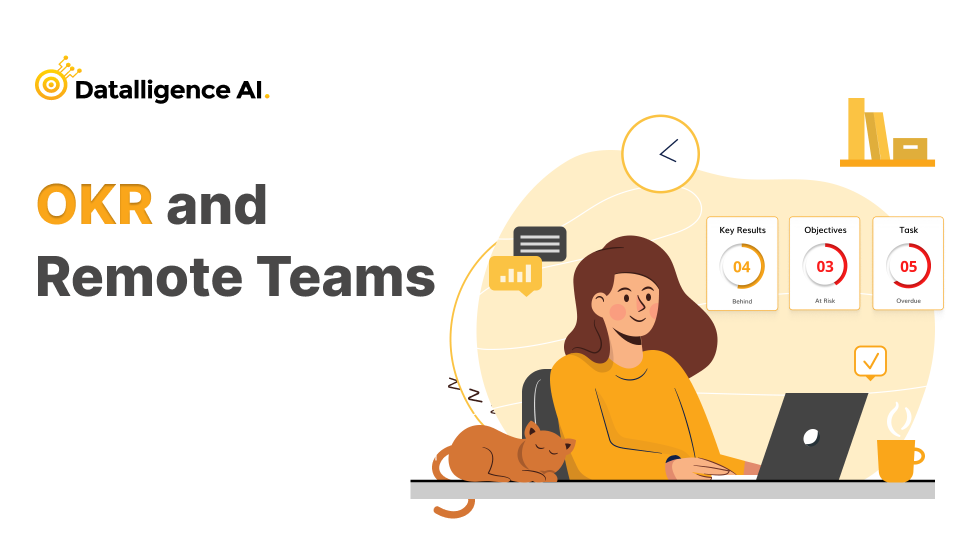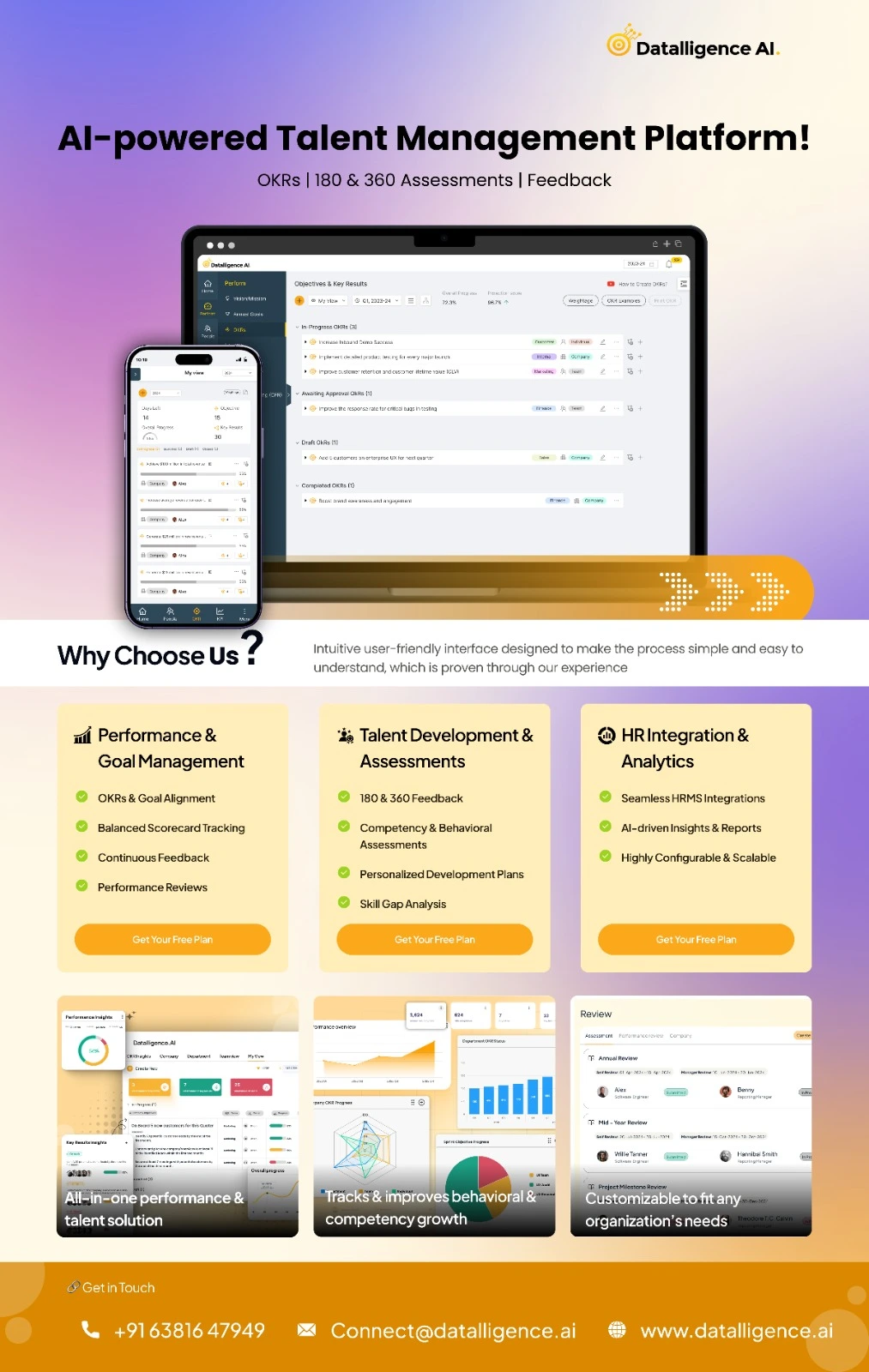The rise of remote work has created new challenges for businesses and teams. The pandemic has changed the way we work and interact in the workplace most of the company continued to be online some companies have come back only 50% to the office. While the challenge remains the same as to how we are going to measure and manage the teams who are working remotely and how to bridge the gap between the remote on the other teams
One of these challenges is effectively setting and achieving goals in a remote work environment. OKRs (Objectives and Key Results) have emerged as a popular solution for companies to overcome these challenges and stay on track.
In this blog, we’ll discuss what OKRs are, why they are important for remote teams, and how to create effective OKRs for your remote team.
What are OKRs
OKRs (Objectives and Key Results) are a powerful goal-setting framework designed to help organizations, teams, and individuals achieve their goals and objectives. They provide a clear and concise way of defining what you want to achieve, and how you will measure progress toward that goal.
By using OKRs, organizations, and teams can align their efforts and focus on what matters most. They can also track progress and hold individuals and teams accountable for results. This helps to ensure that everyone is working towards the same goals and that resources are being used effectively. OKRs are widely used in many organizations, and they have been proven to be a powerful way to achieve business and personal goals.
How OKRs synergize with remote teams
OKRs can be especially useful for remote teams because they provide a structure for setting and tracking goals, and they can help to overcome some of the unique challenges that remote teams face. Here’s how OKRs can synergize with remote teams:
Aligns and focuses remote teams
OKRs provide a way for remote teams to align their efforts and focus on common goals. By using a consistent framework, everyone on the team can understand what is expected of them and how their work contributes to the larger objectives. This helps to ensure that everyone is working towards the same goals, even when they are located in different parts of the world.
Improves communication
OKRs provide a way for remote teams to communicate effectively about what they are working on. By defining clear objectives and key results, teams can have meaningful conversations about progress and make adjustments as needed. This helps to overcome the communication barriers that can arise with remote work, and ensures that everyone is on the same page.
Provides a way to track progress
OKRs provide a way to track progress and hold teams accountable for results. This is especially important for remote teams, where it can be more difficult to keep track of what everyone is working on and to ensure that everyone is making progress toward the objectives.
Encourages transparency and accountability
OKRs help to hold remote teams accountable for their results. By tracking progress against specific metrics, teams can see where they are succeeding and where they need to make changes. This helps to ensure that everyone is focused on delivering results, even when working from different locations.
Flexibility
OKRs are flexible and can be adapted to the needs of different teams and individuals. This makes them ideal for use with remote teams, as they can be tailored to meet the unique challenges of working from home or in different locations. Teams can set their own goals and adjust them as needed to ensure they are on track to achieve their objectives.
Engagement
OKRs help to engage remote teams and keep them motivated. By providing a clear and concise way to track progress and celebrate successes, teams can stay focused and motivated, even when they are not working together in person. This helps to overcome the isolation and lack of team building that can arise with remote work, and ensures that everyone remains committed to achieving their goals.
OKRs can be an effective tool for remote teams looking to set and achieve their goals. They provide a structure for setting and tracking goals, and they can help to align and focus remote teams, improve communication, and facilitate regular check-ins. So, if you’re looking to improve your remote team’s performance, consider implementing OKRs to help you focus and achieve your objectives.
Common problems experienced by remote teams
Communication difficulties
One of the biggest challenges faced by remote teams is effective communication. This can include difficulty in scheduling meetings and collaborating on projects, misunderstandings due to lack of face-to-face interaction, and miscommunication caused by time zones, language barriers, and cultural differences.
Isolation and lack of team cohesion
Remote workers may feel isolated and disconnected from their team, which can lead to low morale and decreased productivity. This can be especially true for team members who are working from home and don’t have the opportunity to socialize and bond with their colleagues in person.
Difficulty in establishing trust
Trust is a key factor in building effective teams, and it can be difficult to establish and maintain trust when team members are not physically together. Remote teams may struggle with building trust and accountability, especially when working with new colleagues or when team members are located in different parts of the world.
Technical difficulties
Technical issues such as poor internet connectivity, lack of access to company resources and systems, and the need for specialized software and hardware can create barriers to effective collaboration and productivity.
Distractions and lack of boundaries
Working from home can create distractions and blur the line between work and personal life. This can lead to decreased productivity and burnout, as remote workers struggle to separate work from their personal life and establish clear boundaries.
Challenges in managing remote teams
Managing remote teams can also present its own set of challenges, including difficulties in tracking progress, providing feedback and coaching, and monitoring performance. Managers need to find ways to effectively manage remote workers and ensure that everyone is staying focused and productive.
To overcome these challenges, remote teams need to establish clear communication channels, build trust and accountability, establish boundaries, and make use of technology to collaborate effectively. By taking these steps, remote teams can overcome the unique challenges they face and work together effectively to achieve their goals.
What are OKR Benefits
There are multiple benefits that we get out of using OKRs to measure organizational performance. OKRs as clearly bring clarity and focus to an individual and what they want to achieve. Also guides them through the process of this transparency of the framework bills trust and motivation few benefits
- Aligns efforts and focus toward common goals
- Improves communication and collaboration
- Increases accountability and results-orientation
- Provides flexibility to adapt to changing circumstances
- Enhances engagement and motivation
- Facilitates tracking and measuring progress
- Promotes transparency and visibility into team performance
- Encourages continuous learning and improvement
- Supports goal-setting and achievement
- Helps break down silos and fosters cross-functional teamwork.
Conclusion
In conclusion, OKRs are a powerful tool for managing remote teams and keeping them focused and motivated. Whether you are a startup or an established organization, OKRs provide a clear and flexible framework for goal-setting, tracking progress, and ensuring that everyone is working towards the same objectives. So, if you are looking to optimize your remote team’s productivity and success, consider incorporating OKRs into your management strategy. Talk to our coaches and experts and gain more insights or try “Datalligence” for free for “14 days”.











